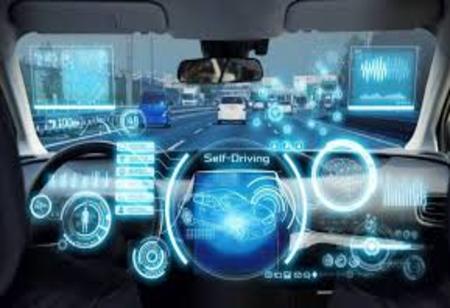
Will self-driving cars relieve India's Perilous Rides?


India still considers self-driving cars as a serious threat as it would to massive job loss, thus the state government is firm on not allowing these automated cars in India. But, India being the largest car market globally the experiment seems to be not feasible. As the entire world waits for self-driving cars, India seems to be a little skeptical about adopting these automated vehicles. According to reports, as of now, India has 40 lakh drivers and it is short of 25 lakh drivers.
However, despite having a negative impact, self-driving cars are also expected to bring in a lot of benefits which would ease the stress of travel all over India. Although the country resisting self-driving cars, automated tractors are certainly on the way to India. These vehicles are expected to have the potential to auto-steer and use geofencing using GPS. Alongside, the tractor’s prototype has been showcased in India by certain brands and it may aid in farm automation on the next level.
These cars are the boon obtained as a result of technological advancement. These vehicles are autonomous car safe and are designed and developed to meet the requirements of humans.
In certain crucial unruly trafficked areas such as Delhi, Bengaluru, and other metro cities. In western cities, traffic rules are strictly followed and these cars would aid follow the through road intersections without traffic lights, avoiding jaywalking pedestrians, and swerving into oncoming traffic like experienced drivers.
In India, at times we humans tend to rash on different mind-set and end up with a severe accident, violating traffic rules, hindering other individuals traveling in that route. This increases the stress level of humans especially the ones going to the office early in the morning, emergency rides to hospitals and other critical rides could be eased out with these driverless cars.
Alongside, the country has many obstacles for driverless cars such as non-existent road markings, potholes, and poorly maintained footpaths, in addition to the government’s unwillingness to permit these cars in India.
Amnon Shashua, President and Chief Executive of Mobileye, “The full stack self-driving system for consumers we believe will come after Robo- taxi, by 2025. We will be able to price a self-driving system with end-to-end sensors, hardware, and cable, everything below $5,000. That price point enables installing these systems into consumer vehicles. In the beginning, it will be in premium vehicles but again this is where things start. It’s the holy grail of this entire business when you as a consumer can buy a passenger car that is autonomously enabled."
Allowing these cars would aid in minimizing the traffic-related issues such as violating traffic rules, overtaking rides, unexpected accidents, minimize life loss, and more. Utilizing these cars could be productive for self-driving individuals as it would save their driving time which they can do other productive tasks. Although these cars are a big threat for drivers it is a boon for people who rely on self-drive by saving their time and give them a stress-free ride to their desired location.
The AI-powered cars have crucial features of minimizing the accident risks and saving human life is what every country considers as their priority. This upgraded technology brings in these advantageous benefits.